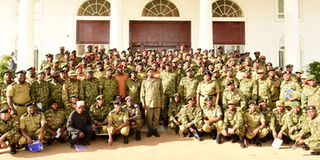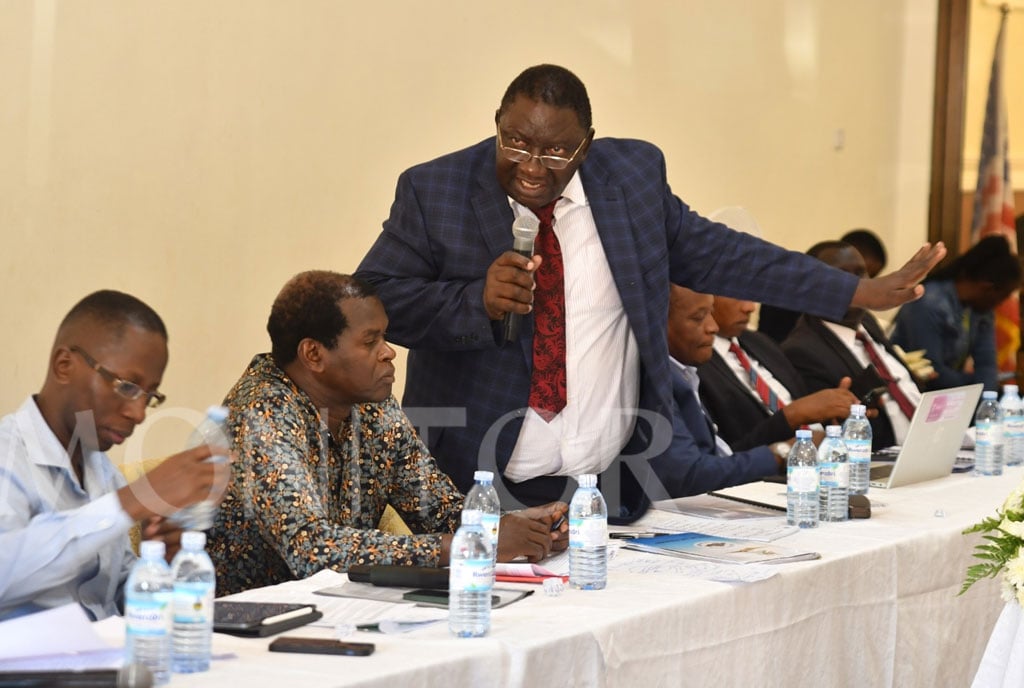Politics of identity rendered Uganda a failed State – Museveni

President Museveni (centre) with 109 senior officers from UPDF, Police and Prisons, who are undergoing political and leadership training in Kyankwanzi, after a lecture at State House Entebbe on Sunday. Mr Museveni advised the group to desist from bad politics. PPU PHOTO
What you need to know:
- He noted that at the time of independence, Uganda had two unprincipled rivalries along tribes and religion. He added that in 1962, the voting was done along religious lines, which led to none of the parties winning a majority.
KAMPALA. President Museveni has taken another swipe at Uganda’s post-colonial leaders, saying they were obsessed with the politics of identity, which rendered Uganda a failed state shortly after independence. Uganda attained independence from Britain in 1962.
At the time of independence and shortly after, Uganda’s economy was said to be at par with Asian countries such as Malaysia and Singapore. However, the subsequent political turmoil in the 1970s and 1980s took Uganda’s economy into a nose dive.
The President, who has made it a routine to criticise Uganda’s past leaders, made the latest remarks while addressing a total of 109 senior officers from the army, police and the prisons. The officers are currently undergoing political and leadership training at the National Leadership Institute in Kyankwanzi District.
“Uganda became a failed State because of politics of identity. What do people need? They need prosperity. This is through economic activities. One has to produce and sell what he produces best. Prosperity is achieved when products are bought,” he said.
The President challenged the officers to understand the crucial need to appreciate ideology and strategy, saying “ideology is like medicine, if one is a medical doctor, his job is to diagnose the ailment afflicting the patient before recommending a prescription.”
He noted that at the time of independence, Uganda had two unprincipled rivalries along tribes and religion. He added that in 1962, the voting was done along religious lines, which led to none of the parties winning a majority.




